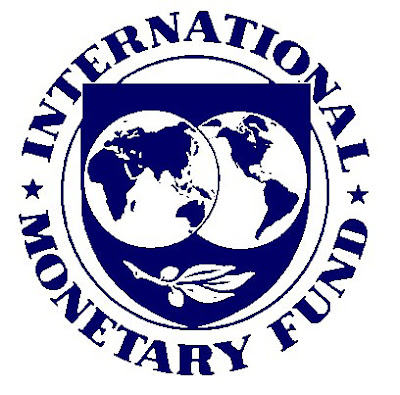
IMF head in shock fiscal warning
Chris Giles and Gillian TettFinancial TimesMonday January 28, 2008
The intensifying credit crunch is so severe that lower interest rates alone will not be enough “to get out of the turmoil we are in”, Dominique Strauss-Kahn, the managing director of the International Monetary Fund, warned at the weekend.
In a dramatic volte face for an international body that as recently as the autumn called for “continued fiscal consolidation” in the US, Dominique Strauss-Kahn, the new IMF head, gave a green light for the proposed US fiscal stimulus package and called for other countries to follow suit. “I don’t think we would get rid of the crisis with just monetary tools,” he said, adding “a new fiscal policy is probably today an accurate way to answer the crisis”.
Mr Strauss-Kahn’s words rip apart a long-standing global consensus that fiscal retrenchment in the US and Japan is needed to help reduce huge trade imbalances.
It comes as the IMF is due to release new economic forecasts this week which, he said, would show a “serious slowdown and it needs a serious response”.
Chris Giles and Gillian TettFinancial TimesMonday January 28, 2008
The intensifying credit crunch is so severe that lower interest rates alone will not be enough “to get out of the turmoil we are in”, Dominique Strauss-Kahn, the managing director of the International Monetary Fund, warned at the weekend.
In a dramatic volte face for an international body that as recently as the autumn called for “continued fiscal consolidation” in the US, Dominique Strauss-Kahn, the new IMF head, gave a green light for the proposed US fiscal stimulus package and called for other countries to follow suit. “I don’t think we would get rid of the crisis with just monetary tools,” he said, adding “a new fiscal policy is probably today an accurate way to answer the crisis”.
Mr Strauss-Kahn’s words rip apart a long-standing global consensus that fiscal retrenchment in the US and Japan is needed to help reduce huge trade imbalances.
It comes as the IMF is due to release new economic forecasts this week which, he said, would show a “serious slowdown and it needs a serious response”.
The US Federal Reserve starts a regular meeting tomorrow and markets expect another half-point cut on top of the 0.75 percentage-point cut last week.
Mr Strauss-Kahn’s dramatic change in stance amazed Larry Summers, the former US Treasury secretary. He is known for saying that the IMF stands for “It’s Mostly Fiscal” because the organisation has to be tough with countries’ budgetary laxity.
But such is his concern about economic prospects if the US slows and other countries do not pick up the slack in world demand that he supported Mr Strauss-Kahn. “This is the first time in 25 years that the IMF managing director has called for an increase in fiscal deficits and I regard this as a recognition of the gravity of the situation that we face,” said Mr Summers.
The dark economic mood in Davos was reinforced at the weekend by John Thain, the new chief executive of Merrill Lynch, who predicted the problems in subprime mortgage markets would spread to credit card and consumer loans. “It will be a while before you see a return to normality in the banking system,” he said.
Thomas Russo, vice-chairman of Lehman Brothers, said: “Absent government intervention, the economic picture is very grey but with government intervention you have a decent chance of stabilising the picture.”
The IMF’s call for countries with strong fiscal positions to loosen their budgets gained approval from Christine Lagarde, the French finance minister, and Palaniappan Chidambaram, the Indian finance minister.
Ms Lagarde suggested Germany would be a prime candidate for fiscal loosening, while Mr Chidambaram said: “India may have some room, if necessary, for some fiscal stimulus.”
Mr Strauss-Kahn’s dramatic change in stance amazed Larry Summers, the former US Treasury secretary. He is known for saying that the IMF stands for “It’s Mostly Fiscal” because the organisation has to be tough with countries’ budgetary laxity.
But such is his concern about economic prospects if the US slows and other countries do not pick up the slack in world demand that he supported Mr Strauss-Kahn. “This is the first time in 25 years that the IMF managing director has called for an increase in fiscal deficits and I regard this as a recognition of the gravity of the situation that we face,” said Mr Summers.
The dark economic mood in Davos was reinforced at the weekend by John Thain, the new chief executive of Merrill Lynch, who predicted the problems in subprime mortgage markets would spread to credit card and consumer loans. “It will be a while before you see a return to normality in the banking system,” he said.
Thomas Russo, vice-chairman of Lehman Brothers, said: “Absent government intervention, the economic picture is very grey but with government intervention you have a decent chance of stabilising the picture.”
The IMF’s call for countries with strong fiscal positions to loosen their budgets gained approval from Christine Lagarde, the French finance minister, and Palaniappan Chidambaram, the Indian finance minister.
Ms Lagarde suggested Germany would be a prime candidate for fiscal loosening, while Mr Chidambaram said: “India may have some room, if necessary, for some fiscal stimulus.”







No comments:
Post a Comment